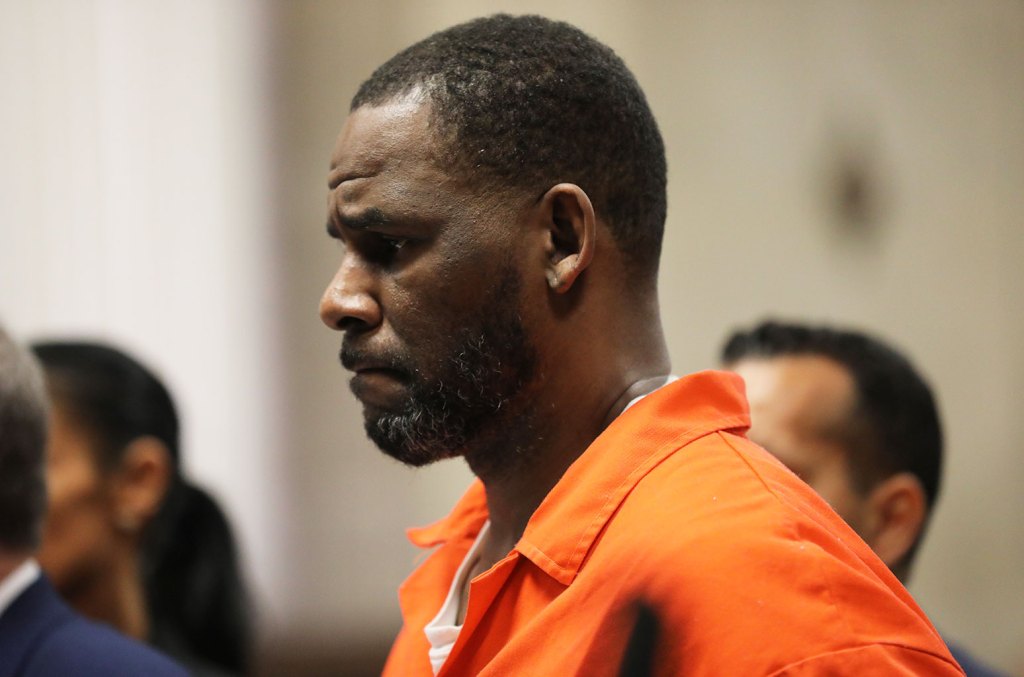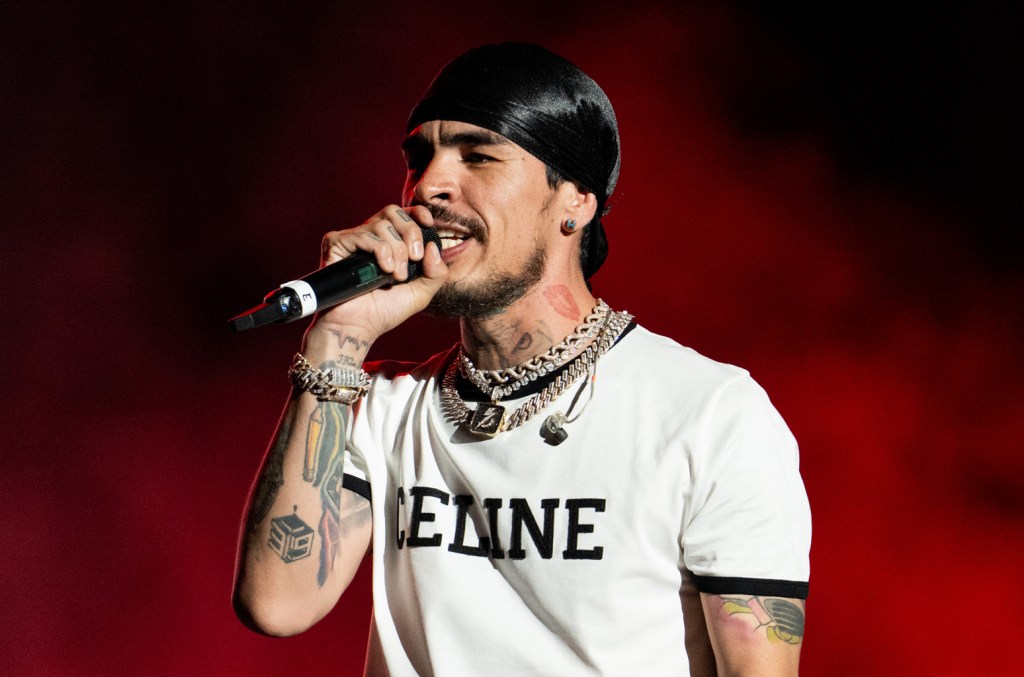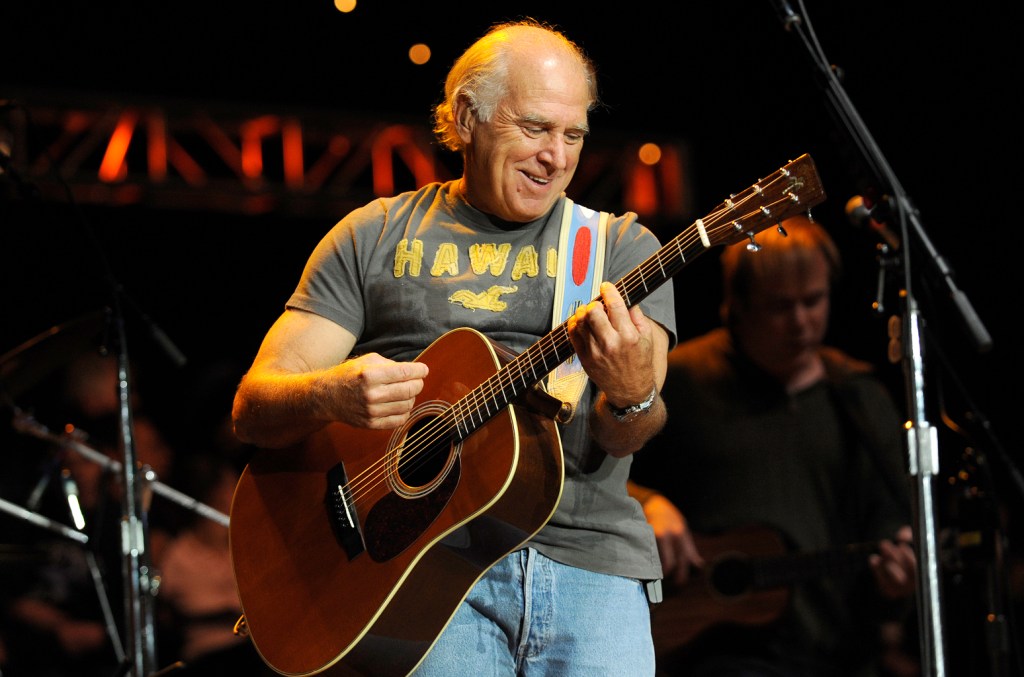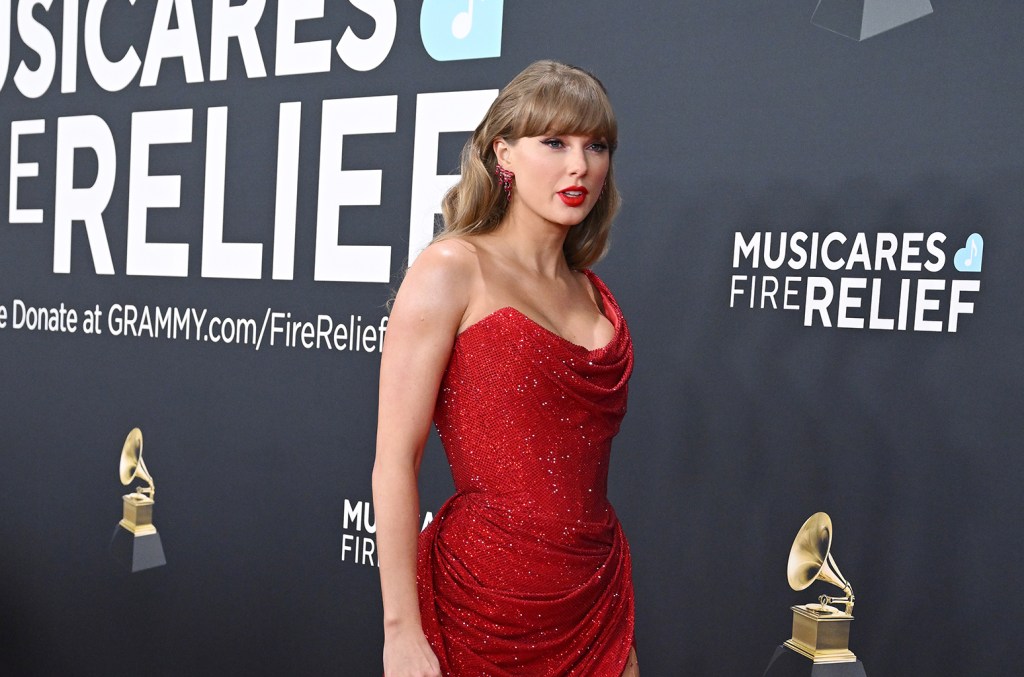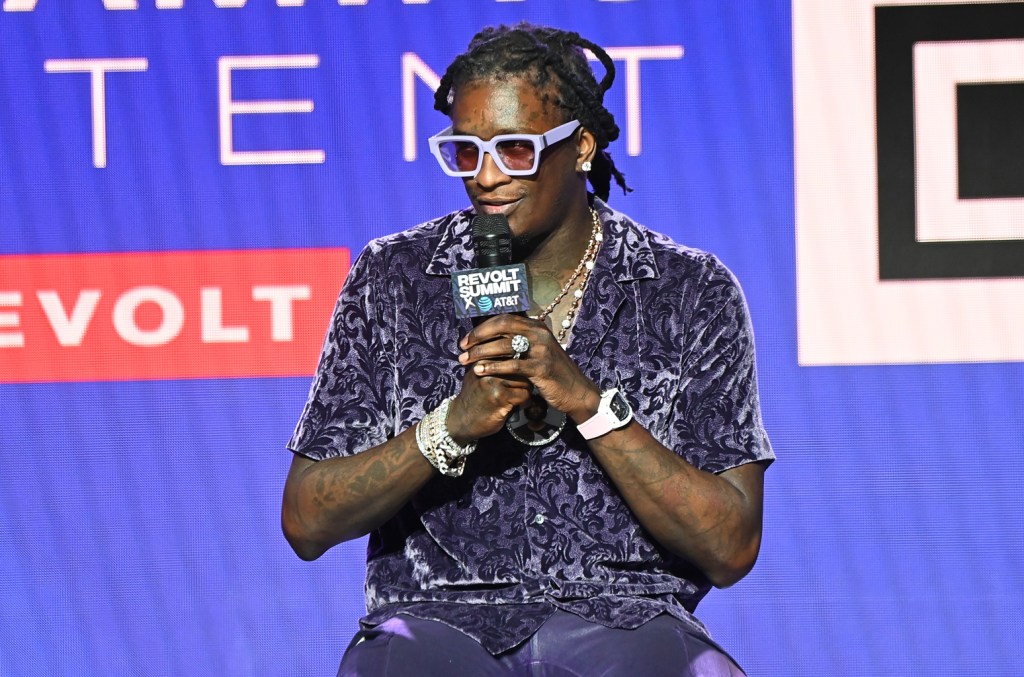Legal News
Page: 12
R. Kelly is asking to cut short his 30-plus-year sentence for racketeering, sexual abuse and child pornography based on strange new claims that jail officials tried to solicit a fellow inmate to kill him.
The disgraced R&B star made the eyebrow-raising allegations in a Tuesday (June 10) court filing asking to be released from the Federal Correctional Institution in Butner, N.C., where he’s serving multiple decades after being convicted in two separate criminal cases.
Kelly claims he’s no longer safe behind bars because prison officials are trying to have him killed to keep from revealing prosecutorial misconduct he recently uncovered — namely, that his pre-trial cellmate stole his attorney-client communications and shared these private messages with prosecutors.
According to the motion, prison officials tried to stop this damaging information from getting out by soliciting fellow inmate Mikeal Glenn Stine, a member of the Aryan Brotherhood prison gang, to kill Kelly. Kelly’s lawyers say that while Stine ultimately did not go through with the alleged assignment, the threat still lingers.
“More A.B. members are accumulating at his facility,” reads the filing. “More than one has already been approached about carrying out his murder. One of them will surely do what Mr. Stine has not, thereby burying the truth about what happened in this case along with Robert Kelly.”
The motion includes signed declarations from both Stine and Kelly’s former cellmate. In a statement shared with Billboard, Kelly’s attorney, Beau Brindley, said, “The evidence we have before us demonstrates the weaponization of the D.O.J. to pursue a public figure through corrupt and criminal means.”
Brindley added that Kelly’s legal team is seeking clemency from President Donald Trump, saying Trump “is the only one with both the power and the courage” to curb such alleged prosecutorial corruption.
Prosecutors did not immediately return a request for comment on the motion, but they quickly filed papers of their own asking Judge Martha M. Pacold to strike Kelly’s filing, which contained the name of a child victim who was anonymized during his trial.
“Robert Kelly is a serial sexual predator,” wrote prosecutors. “He even documented his sexual abuse of children on film — creating child pornography — such that the abuse would live on in perpetuity. That abuse and harassment continues with defendant’s latest filing.”
Judge Pacold struck the motion as requested and ordered Kelly’s team to refile it with the victim’s name properly redacted. The judge set a hearing on the matter for Wednesday (June 11) in Chicago.
Kelly was convicted of a slew of sex crimes at two separate federal trials. A New York jury found him guilty of racketeering and sex trafficking in 2021, and he was convicted of child pornography and enticing minors for sex in Chicago in 2022.
The former R&B star was sentenced to 30 years in prison for the New York conviction and 20 years in the Chicago case, although the vast majority of the second sentence will overlap with the first. Both convictions have been upheld on appeal.
Música mexicana singer-songwriter Codiciado has filed a lawsuit against his old record label, Rancho Humilde, and former bandmates in the ensemble Grupo Codiciado, claiming they stole his intellectual property by getting the band back together under the name Los Codicia2 after he went solo.
Codiciado (Erick de Jesús Aragón Alcantar) made the accusations in a federal lawsuit filed Tuesday (June 10) against Rancho Humilde; the label’s trio of co-founders, Jaime Humilde, Jose “JB” Becerra and Roque “Rocky” Venegas; and former Grupo Codiciado members Alexis Aguirre, Ivan Ramirez and Giovanni Rodriguez Meza.
Grupo Codiciado formed in Tijuana in 2015 and later signed with Rancho Humilde; it reached No. 8 on the Regional Mexican Albums chart with Miro Lo Que Otros No Miran in 2018. The group disbanded in 2021, after which its lead singer, Codiciado, went solo, returning to the Billboard charts with his song “Vamos Aclarando Muchas Cosas” in 2023 and launching a successful tour the following year.
Trending on Billboard
The trouble started when Aguirre, Ramirez and Rodriguez Meza debuted a new group called Los Codicia2, pronounced “Los Codiciados,” under Rancho Humilde at the beginning of 2025. Codiciado claims the group’s name infringes his own trademarked moniker.
“The infringing mark adopted and used by defendants is practically identical to plaintiff’s marks,” wrote Codiciado’s lawyers. “This mark differs from plaintiff’s ‘CODICIADO’ mark only in that the final letter is ‘S’ and in the preceding term ‘LOS.’”
Codiciado says Rancho Humilde and his former bandmates are purposefully trying to mislead fans into thinking he’s affiliated with or endorses the new group, stating in the lawsuit that they’re attempting to “trade on the goodwill of plaintiff’s marks, cause confusion and deception in the marketplace and divert potential sales of plaintiff’s products to defendants.”
According to Codiciado, this alleged wrongdoing has persisted despite his sending multiple cease-and-desist letters to the label and band. He’s now seeking a court injunction to make them stop, plus monetary damages for trademark infringement, trademark dilution and unfair competition.
“Defendants’ acts are causing and, unless restrained, will continue to cause incalculable damage and immediate irreparable harm to plaintiff and to his valuable reputation and goodwill with the consuming public for which plaintiff has no adequate remedy at law,” the lawsuit reads.
Representatives for Codiciado declined to comment on the claims. Rancho Humilde did not immediately return requests for comment.

A federal judge has issued a gag order in Megan Thee Stallion’s defamation lawsuit against gossip blogger Milagro Gramz over the Tory Lanez shooting, citing warnings from the star’s lawyers that ongoing posts about Megan could “incite violence.”
The ruling came in a lawsuit Megan filed against Gramz (Milagro Cooper) last year, claiming the YouTuber had been “churning out falsehoods” on behalf of Lanez, who is currently serving a 10-year prison sentence for shooting Megan in 2020.
At a court hearing last week, Megan’s attorneys warned the judge that Gramz had continued to post “derogatory statements” about the superstar even after she sued her. Attorneys for Gramz argued back that she was merely responding to statements from Megan.
Trending on Billboard
In a ruling issued Tuesday (June 10), Magistrate Judge Lisette M. Reid settled the spat by simply ordering both sides to stop discussing the case publicly — a decision that came with a reminder that “the First Amendment right to free speech is not absolute.”
“Both plaintiff’s and defendant’s social media postings have been viewed by their large following and plaintiff’s counsel expressed concern that defendant’s posts have generated severely critical and derogatory comments about plaintiff by defendant’s social media followers and could incite acts of violence,” the judge wrote. “As such, further extrajudicial statements by plaintiff and defendant could taint the jury pool.”
Neither side immediately returned requests for comment — unsurprisingly, given that they are now subject to a gag order.
Lanez (Daystar Peterson) was convicted in December 2022 on three felony counts over the 2020 shooting, in which he shot at the feet of Megan during an argument following a pool party at Kylie Jenner’s house in the Hollywood Hills. In August 2023, he was sentenced to 10 years in prison. He has filed an appeal, which remains pending.
In an October civil lawsuit, Megan’s attorneys accused Gramz of repeatedly spreading falsehoods about that criminal case, including questioning whether Megan was even shot at all and claiming she was “caught trying to deceive the courts.” More recently, they said Gramz had pushed the “outlandish claim” that the gun Lanez used in the shooting had gone missing from evidence.
The lawsuit claimed the blogger made those claims because she was serving as a “mouthpiece and puppet” for Lanez as the singer sat behind bars. In an updated version of the lawsuit filed in December, Megan’s attorneys said prison call logs suggested that Lanez and his father had arranged to pay Gramz.
In February, a judge ruled that the case could move ahead. Denying a request by Gramz to dismiss the lawsuit, the judge said Megan had made a “compelling case” that the blogger had defamed her by claiming the star lied during Lanez’s trial and that she was “mentally retarded.”
“Plaintiff’s claims extend far beyond mere negligence — they paint a picture of an intentional campaign to destroy her reputation,” the judge wrote. “That is more than enough to [deny the motion to dismiss].”
In her gag order Tuesday, Judge Reid said that neither Megan nor Gramz “nor anyone acting on either parties’ behalf” can discuss the case “in any public forum or manner” while it remains pending. And she warned that violators of the order could be held in contempt of court.
THE BIG STORY: Two years after Jimmy Buffett’s death, his widow and his longtime former business manager are locked in a legal war over the singer-songwriter’s $275 million estate.
Jane Buffett, his wife of 46 years, and Rick Mozenter, an accountant and financial advisor to Buffett for decades, launched dueling court actions last week accusing the other of hostility and mismanagement. At issue is control of the singer’s trust, which holds, among other assets, a lucrative 20% stake in his Margaritaville chain of resorts and restaurants.
Jane’s lawyers say Mozenter has been “openly hostile and adversarial” and has “failed to perform even the most basic tasks required of him” in his role as co-trustee. Mozenter’s attorneys say Buffett clearly intended to limit his wife’s control over the trust – but that this has “made Jane very angry” and caused her to be “completely uncooperative.”
Trending on Billboard
For more, go read Rachel Scharf’s full story on the battle over Buffett.
You’re reading The Legal Beat, a weekly newsletter about music law from Billboard Pro, offering you a one-stop cheat sheet of big new cases, important rulings and all the fun stuff in between. To get the newsletter in your inbox every Tuesday, go subscribe here.
Other top stories this week…
CUSTODY BATTLE – Halle Bailey and ex-boyfriend DDG exchanged scathing court filings amid their increasingly acrimonious custody battle over their one-year-old son. In his petition, the rapper (Darryl Dwayne Granberry Jr.) claimed that Bailey had been abusive and repeatedly threatened self-harm; in her response, Bailey said those claims were exaggerated and that DDG’s filing was “cold retribution to embarrass, humiliate and caused me additional emotional distress.” The back-and-forth came a month after Bailey sought and won a restraining order by claiming the rapper had physically abused her, including in the presence of their son.
DIDDY TRIAL RECAP – The sex-trafficking trial of Sean “Diddy” Combs continued into a fifth week, starting with the judge denying a motion for a mistrial based on testimony about an infamous alleged incident in which the rap mogul dangled a woman from a 17th-floor balcony. Don’t miss our full recap of Week 4, which included testimony about the balcony incident; testimony about Diddy buying a surveillance video with $100,000 in cash in a paper bag; and the start of testimony from an alleged victim named “Jane” over being forced to participate in marathon “freak-offs.” The trial is expected to run until early July.
YSL CASE CLOSED – More than three years after Young Thug, Gunna and dozens of others were indicted in Atlanta on gang charges, the last co-defendant pleaded guilty – a moment that marks the formal end of a sprawling, controversial criminal case that had captivated the music industry for years. The final closure came seven months after Thug pleaded guilty and received only probation, a stunning defeat for prosecutors that had labeled him a dangerous gang boss.
BIG PIMPIN QUOTES – Jay-Z’s legal nemesis Tony Buzbee asked a federal judge to dismiss the rapper’s defamation case with an unusual flourish: quoting the lyrics from the star’s “Big Pimpin.” Buzbee, a Texas lawyer who briefly filed a rape lawsuit against the rapper before dropping it without a settlement, claimed in the court filing that the 2000 song’s references to prostitution describe Jay’s views on “how men should treat women.”
LYRICS LITIGATION – Lyrics provider Musixmatch filed a response to a recent antitrust lawsuit from rival LyricFind, calling the case “meritless” and arguing that the rival was “hoping it can obtain through litigation what it was unable to win in the marketplace.” The response came two months after LyricFind accused Musixmatch of seeking to monopolize the market for providing lyrics to streamers like Spotify by signing an “unprecedented” deal with Warner Music.
ANOTHER TAYLOR STALKER – Taylor Swift won a temporary restraining order against an alleged stalker named Brian Jason Wagner, a 45-year-old Colorado man who the pop superstar claims showed up at her Los Angeles home numerous times over the past year to falsely claim she’s the mother of his child. In seeking the court order, Swift argued Wagner’s conduct “makes me fear for my safety and the safety of my family.” Swift has had trouble with stalkers before, including a man arrested last year after being spotted dozens of times outside her Manhattan apartment.
LIL DURK BAIL DENIED – The drill rapper was once again denied release on bond in his murder-for-hire case, leaving him to sit in jail until his trial (currently scheduled for October). The federal judge overseeing the case – which claims he hired gunman to carry out a failed hit on rival Quando Rondo – noted that rapper was apprehended trying to board a flight to Dubai (United Arab Emirates is a non-extradition country) and might try to escape again if let free.
DEFAMATORY DOC? – Russell Simmons filed a defamation lawsuit against HBO over a 2020 documentary called On The Record that focused on the sexual assault allegations against him. Simmons said the movie disregarded or “suppressed” key evidence in his favor — including “CIA-grade polygraph results” and Oprah Winfrey’s withdrawal from the project – that would have refuted and rebutted” the allegations that were “falsely made against plaintiff in the film.”
ROYALTIES ROW – Sony filed a lawsuit against the streaming platform LiveOne and its subsidiary Slacker Radio, claiming they owe $2.6 million in unpaid licensing fees but have refused to stop playing the label’s music, including tracks by Beyoncé, Miley Cyrus and Tate McRae.
NEWJEANS COURT ORDER – A dispute between K-pop band NewJeans and its agency ADOR, a HYBE subsidiary, escalated when a South Korean court approved a stricter legal measure restricting the group’s independent activities. The court ordered each member (Minji, Hanni, Danielle, Haerin and Hyein) to pay 1 billion KRW ($734,000) for any unauthorized entertainment activity – meaning fines could total $3.6 million for a single uncleared group appearance.
A motion for a mistrial in the Sean “Diddy” Combs sex trafficking trial has been denied by a federal judge.
Attorneys for the embattled hip hop mogul had argued that prosecutors knowingly introduced false testimony by Bryana Bongolan – the witness who claimed last week that Combs dangled her from a 17-story balcony in 2016.
But at the start of Tuesday’s proceedings, Judge Arun Subramanian said the alleged issue did not rise to the level of a trial-ending error: “This is not fodder for a mistrial. This is the adversarial process at work,” Subramanian said from the bench, according to ABC.
Combs is standing trial on racketeering and sex trafficking charges over accusations that he ran a sprawling criminal operation aimed at facilitating freak-offs — elaborate events which he allegedly forced his ex-girlfriend Cassie Ventura and other women to have sex with male escorts while he watched and masturbated.
Prosecutors also say the star and his associates used violence, money and blackmail to keep victims silent and under his control. (Read Billboard‘s full explainer of the case against Diddy here.) Combs had pleaded not guilty; if convicted on all of the charges, he faces a potential sentence of life in prison.
Trending on Billboard
With the case halfway through a trial expected to run eight weeks, Diddy’s defense team moved for a mistrial based on Bongolan’s testimony about the balcony incident, one of the flashiest accusations in the case.
In a motion filed Saturday, the star’s lawyers said prosecutors had presented jurors with “demonstrably false” evidence during her time on the stand. Bongolan testified that she took photos of her injuries from the attack on September 26, 2016, but defense attorneys said they had hotel receipts showing Diddy was in New York from Sept. 24 to 29 of that year.
“The government knew or should have known this testimony was perjured, and that Ms. Bongolan could not possibly have been injured by Mr. Combs on a Los Angeles balcony in the early morning hours of September 26, or even the day before that,” his lawyers wrote in the motion, also claiming that Bongolan had committed perjury.
Prosecutors did not respond with a written filing of their own, but they argued in court last week that the attack could have happened before the September 24and that Bongolan merely documented it later. Presented with the receipts and subject to withering cross examination, Bongolan stood by her story but admitted that she was unsure of the date.
Following Tuesday’s denial, the trial will continue on with more testimony from prosecution witnesses. The most recent is “Jane,” a former girlfriend who testified last week and Monday that Diddy physically, sexually and psychologically abused her. She is facing cross-examination during Tuesday’s proceedings.
Taylor Swift has won a temporary restraining order against an alleged stalker who the pop superstar claims showed up at her Los Angeles home numerous times over the past year to falsely claim she’s the mother of his child.
The order requires Brian Jason Wagner, a 45-year-old Colorado man, to stay at least 100 yards away from Swift and her residence. Judge Debra R. Archuleta signed the directive on Monday (June 9), three days after Swift petitioned the court for help.
In the restraining order request filed Friday (June 6), Swift said Wagner is a stalker who first showed up at her Los Angeles residence in July 2024. Wagner allegedly returned multiple times that month, at one point “carrying a glass bottle that could have been used as a weapon.”
Trending on Billboard
“During each of these visits, I am informed that Mr. Wagner made various statements about living at my property (not true), being in a relationship with me (not true), believing I am the mother of his son (not true), and needing to see me in person, all of which are untrue and disconnected from reality,” wrote Swift.
Swift said Wagner returned to the house again twice this past May, prompting her security team to run a background report. At this point, Swift’s staff discovered that Wagner had a criminal record and had sent “lengthy communications” from jail discussing a nonexistent romantic relationship with the singer.
According to the restraining order request, Swift’s team also discovered that Wagner had attempted to steal her mail and illegally obtained a California driver’s license that listed her Los Angeles address as his own.
“I do not share publicly where I reside and have never shared my address or the location of my Los Angeles residence with Mr. Wagner,” wrote Swift in the filing. “Therefore, the fact that Mr. Wagner has determined where I reside and visited the property several times, refusing to leave and claiming to need access, makes me fear for my safety and the safety of my family. The fact that both of these recent visits and Mr. Wagner’s inappropriate and threatening communications to my staff about me have escalated in recent weeks creates a fear of imminent harm.”
The temporary restraining order is set to expire on June 30, when Judge Archuleta will hold a hearing to determine whether a more permanent restraining order should be put in place.
Swift’s reps did not immediately return a request for comment on Monday. Wagner could not be reached for comment.
This is just the latest in a string of disturbing incidents that have landed Swift’s alleged stalkers in legal trouble over the past few years. Florida man Roger Alvarado was sentenced to six months in jail in 2019 for breaking into Swift’s New York home and taking a nap in her bed, and Texas resident Eric Swarbrick was sentenced to two and a half years in federal prison in 2020 for sending violent and threatening letters to her former label, Big Machine Records.
In January 2024, a man named David Crowe was charged with stalking after showing up outside Swift’s New York apartment dozens of times in just a few months. The charges were ultimately dropped, as Crowe was declared mentally unfit for trial and transferred to a mental health facility.
More than three years after Young Thug, Gunna and dozens of others were indicted in Atlanta on gang charges, Thug’s last co-defendant has pleaded guilty.
A trial had been set to start Monday (June 9) in Fulton County court for Christian Eppinger, who stood accused of attempted murder for allegedly shooting an Atlanta police officer in 2022. But he instead entered a so-called Alford plea, allowing him to technically plead guilty while maintaining that he is innocent; he was later sentenced to 40 years in prison.
Eppinger was the last remaining defendant of 28 men indicted in May 2022 by Fulton County prosecutors, who claimed that Thug’s “YSL” — nominally a record label — was also a violent gang called “Young Slime Life” that had wrought “havoc” on Atlanta for years. Thug was released from jail in October after a judge sentenced him to just probation, a stunning defeat for District Attorney Fani Willis after her office had labeled him a dangerous gang boss.
Asked Friday (June 6) if the massive prosecution had been a “waste of taxpayer money,” Willis vehemently defended the case and stressed that it had resulted in 19 convictions: “What my constituents say, who just voted me by 68 percent, is she’s doing an amazing job,” Willis told Atlanta’s NBC affiliate. “We are making sure that this community is safe.”
A representative for the DA’s office did not immediately return a request for comment on Monday.
Pitting prosecutors in America’s rap capital against a chart-topping rapper who helped shape the sound of hip-hop in the 2010s, the YSL case captivated the music business for years. Most notably, it relied heavily on song lyrics as evidence, a controversial practice that has drawn backlash from the music industry and efforts by lawmakers to stop it.
The case also saw Thug sit in jail for years while the messy proceedings — the longest in state history — played out in court, turning his charges into a cause célèbre and raising big questions about procedural fairness. Gunna, a frequent collaborator and protégé of Thug, was also initially charged, though he quickly pleaded out.
The charges against Thug and the other YSL members were built on Georgia’s Racketeer Influenced and Corrupt Organizations, a state-level version of the federal RICO law used against the Mafia, drug cartels and other large criminal enterprises. Prosecutors alleged that members of the YSL enterprise had committed murders, carjackings, drug dealing and many other crimes — and that Thug was the “King Slime” crime boss running the operation from the top.
But when the trial kicked off in January 2023, that sweeping narrative proved difficult to litigate in court.
After an unprecedented 10-month jury selection process, prosecutors slowly worked through a vast list of witnesses that included more than 100 names. Last summer, the case was delayed for weeks due to a bizarre episode over a secret meeting between the judge, prosecutors and a witness — an incident that saw the judge removed from the case. Things got worse for the DA’s office in October, when botched testimony from a state’s witness sparked talk of a mistrial and prompted a wave of plea deals.
Prosecutors offered such a deal to Thug, but it would have seen him spend 25 years in prison. Thug’s attorneys rejected that offer and instead opted to simply plead guilty — a gamble that paid off spectacularly when Judge Paige Reese Whitaker sentenced him to just probation with no time served in prison.
“I know you’re talented, and if you choose to continue to rap, you need to try to use your influence to let kids know that is not the way to go and that there are ways out of poverty besides hooking up with the powerful guy at the end of the street selling drugs,” Whitaker said.
After that, just two key defendants — Deamonte “Yak Gotti” Kendrick and Shannon Stillwell — remained in the trial, facing some of the most serious charges in the case, including carrying out the 2015 murder of rival gang leader Donovan Thomas that played a central role in the prosecution’s case. But a jury largely acquitted them on those counts in December, and both were released immediately after the verdicts.
Those verdicts ended the trial, but not the case. Eppinger and several others had been separated from the case early in the proceedings to face their own trials on charges related to YSL.
Eppinger, an aspiring rapper who used the performing name “Big Bhris,” pleaded guilty to a slew of charges on Monday, including armed robbery and RICO conspiracy. Though he was sentenced to 40 years, it will be served concurrently with an existing 45-year sentence on an earlier crime, meaning he did not receive any additional prison time.
Though the Thomas killing formed a core part of the YSL case — Young Thug was alleged to have helped rent the car that was used in the drive-by shooting — no defendants were ever convicted of the murder. The last defendant alleged to have been involved, Damekion Garlington, took a plea deal last month that saw him sentenced to five years in prison for aggravated assault.
In the Friday interview, Willis argued that crime had dropped in Fulton County “because of the efforts I have done against gangs.” And she harshly criticized others — media outlets for “glorifying violence,” defense attorneys who “don’t care about the African American community,” and even Judge Whitaker — for how the YSL case has been portrayed.
“It was an amazing time. We had 19 convictions. The community is safer,” Willis said. “We made sure that we got the resolutions that we want. If they’re unhappy with sentencing, they should elect other judges.”
Sony claims in a new lawsuit that streaming platform LiveOne and its subsidiary Slacker Radio owe $2.6 million in unpaid licensing fees yet are refusing to stop playing the label’s music, including tracks by Beyoncé, Miley Cyrus and Tate McRae.
The allegations come in a federal lawsuit Sony filed Friday (June 6) against LiveOne and Slacker, which LiveOne acquired in 2017 and has since folded into the LiveOne streaming app.
Sony and Slacker have been doing business with each other since 2007 through a content distribution deal, according to the lawsuit. But Sony’s lawyers say LiveOne and Slacker stopped making regular monthly licensing payments in August 2024 and now owe a total outstanding balance of $2.6 million.
Trending on Billboard
“In the past several months alone, Slacker claims to have seen increasing commercial success, touting a surge in usage of the LiveOne app and a year-over-year surge in content views,” write Sony’s attorneys. “Despite this self-proclaimed growth, Slacker—true to its name—has failed to make license payments to Sony Music as and when required under the agreement, and its parent, LiveOne, has likewise failed to live up to its guarantee.”
According to the lawsuit, Sony notified LiveOne and Slacker in March that it was terminating the content distribution deal in light of this contract breach. Sony says it “expressly informed” them that further use of its music would constitute copyright infringement, according to the lawsuit.
But Sony’s lawyers claim the LiveOne app is still streaming more than 200 of the label’s songs — also including tracks by Doja Cat, Harry Styles, Justin Timberlake and Khalid.
“Slacker’s conduct has caused and continues to cause substantial and irreparable harm to Sony Music and its artists, while enriching defendants at the expense of Sony Music and its artists,” write Sony’s lawyers. “By this lawsuit, Sony Music seeks damages for Slacker and LiveOne’s breach of the agreement and for defendants’ willful infringement of Sony Music’s copyrights since the March 15, 2025, termination of the agreement.”
Representatives for Slacker did not immediately return Billboard’s request for comment on the claims.
The lawsuit comes three years after Slacker and LiveOne faced a different lawsuit over unpaid fees from SoundExchange, the nonprofit that collects and distributes royalties to record labels and artists. A federal judge ultimately ordered the streaming companies to pay SoundExchange nearly $10 million in past-due royalties.
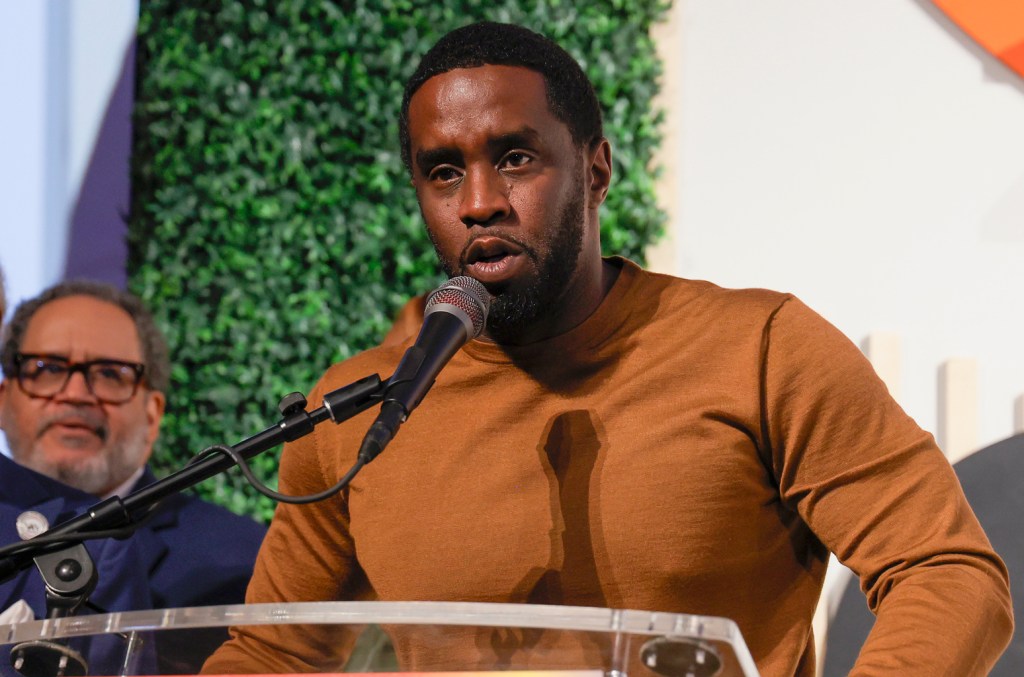
The fourth week of Sean “Diddy” Combs‘ sex-trafficking trial featured dramatic testimony about the rap mogul dangling a woman from a 17th-floor balcony and buying damning surveillance footage with $100,000 in cash in a paper bag, while a former girlfriend using the pseudonym “Jane” got emotional on the witness stand as she described being forced to participate in marathon “freak-offs.”
Combs is accused of using violence, money and blackmail to force women to participate in elaborate, drug-fueled sex shows called “freak-offs” — charges that Combs denies, saying his sex parties were consensual. Federal prosecutors have been presenting the case to a jury in New York since early May.
The trial’s fourth week began on Monday (June 2) with the cross-examination of Combs’ former assistant, who’s using the pseudonym “Mia” in the trial. Mia testified that Combs sexually assaulted her numerous times during her employment, according to reporting from the New York Times.
On Tuesday (June 3), a security officer at the InterContinental Hotel in Los Angeles told the jury that Combs gave him a brown paper bag full of $100,000 in cash in exchange for now-infamous surveillance footage of the rapper violently beating his then-girlfriend Cassie Ventura. That video is a centerpiece of the prosecution’s case against Combs.
“He said not to make any big purchases,” testified the security officer, Eddy Garcia, according to the Times.
Prosecutors will likely point to Garcia’s testimony to back their claim that Combs used money and the power of his businesses to obstruct justice, a central piece of their racketeering conspiracy charge, while Team Combs has said he was merely trying to prevent bad publicity in buying the footage.
Wednesday (June 4) brought more dramatic testimony, this time from Ventura’s friend Bryana Bongolan. Bongolan alleged that Combs dangled her from the 17th-floor balcony of Ventura’s apartment in 2016, an incident that Ventura previously chronicled in her civil lawsuit that sparked Combs’ downfall.
“I have night terrors and paranoia and scream in my sleep at times,” Bongolan testified about the lasting psychological impact of that night, according to CNN.
Bongolan also told the jury that she once witnessed Combs throwing a knife at Ventura, who gave lengthy testimony at the beginning of the trial about years of alleged abuse. Another time, Bongolan said, Combs threatened her life at a photoshoot.
“He came up really close to my face and said something around the lines of, ‘I’m the devil and I could kill you,’” Bongolan said.
Jurors spent the bulk of both Thursday and Friday (June 5 and June 6) hearing from an anonymous former girlfriend of Combs using the pseudonym “Jane,” the Washington Post reports. In emotional and at times tear-filled testimony, Jane said she felt obligated to participate in Combs’ freak-offs because he paid her rent and other bills.
The jury also watched videos of the freak-offs, in which Jane said Combs forced her to have sex with multiple male escorts over the course of more than 24 hours at a time. She said Combs rejected her requests to use condoms and wouldn’t let her take breaks when she was in pain.
Jane’s testimony often mirrored that of Ventura; notably, both women claimed that Combs coerced them into performing sex acts that the rapper’s defense lawyers insist were consensual. This came through in text messages between Jane and Combs that were entered into evidence.
“I don’t want to play this role in your life anymore. It’s dark, sleazy and makes me feel disgusted with myself,” wrote Jane in one message. “I don’t want to feel obligated to perform these nights with you in fear of losing the roof over my head.”
“Girl stop,” Combs replied.
Jane is set to return to court on Monday (June 9) for more testimony. The trial is scheduled to continue for up to another month.
A court battle over the future of online lyrics is getting heated.
Months after LyricFind accused Musixmatch of seeking to monopolize the market for providing lyrics to streamers like Spotify by signing an “unprecedented” deal with Warner Music, the rival is striking back – demanding that a federal judge toss out the case entirely.
The lawsuit claims that Musixmatch violated federal antitrust laws, but in a motion to dismiss the case filed on Thursday, the company says all it did was beat a competitor.
“LyricFind, unable to convince WCM to do business with it instead, has filed this meritless antitrust suit … hoping it can obtain through litigation what it was unable to win in the marketplace,” the company’s lawyers write. “Stripped of buzzwords and hyperbole, the core of LyricFind’s Complaint is simply that WCM chose Musixmatch instead of LyricFind.”
Trending on Billboard
The legal war between the two lyrics providers kicked off in March, when LyricFind accused Musixmatch of engaging in unlawful conduct that had “eliminated competition and raised prices.”
At the center of the case is an agreement that MusixMatch struck with Warner Music. LyricFind claims the major labels have historically licensed their vast catalogs of lyrics on a non-exclusive basis, allowing firms to compete for the right to provide them to streaming services. The lawsuit says the new deal with Warner was instead an exclusive deal that allegedly shuts out competitors from offering the music giant’s lyrics — an “unprecedented” approach.
“Musixmatch’s goal was simple: make sure that Spotify, and other [streamers], have no choice but to obtain [lyrics] from Musixmatch despite its higher fees — a plainly anticompetitive result,” the company’s attorneys wrote at the time. (Neither Warner Music nor Spotify were named as a defendant in the case or accused of any wrongdoing.)
But in Thursday’s response, Musixmatch said it had done nothing wrong, arguing that antitrust laws are designed to “protect competition, not particular competitors.” The company said LyricFind had turned to the courts simply because it was “angered” that a customer had cut ties.
“LyricFind’s alleged injury flows from WCM’s lawful decision to end its relationship with LyricFind, which means that LyricFind would have been injured regardless of whether Musixmatch or a different firm was appointed as WCM’s agent,” the company’s lawyers write.
“Nor has LyricFind plausibly alleged how it is foreclosed from competing in the marketplace: the Complaint is conspicuously silent on the duration of the agreement, and contradictory and implausible allegations about the actual scope of exclusivity defeat any plausible claim of substantial foreclosure.”
A rep for LyricFind did not immediately return a request for comment on Friday.

 State Champ Radio
State Champ Radio 